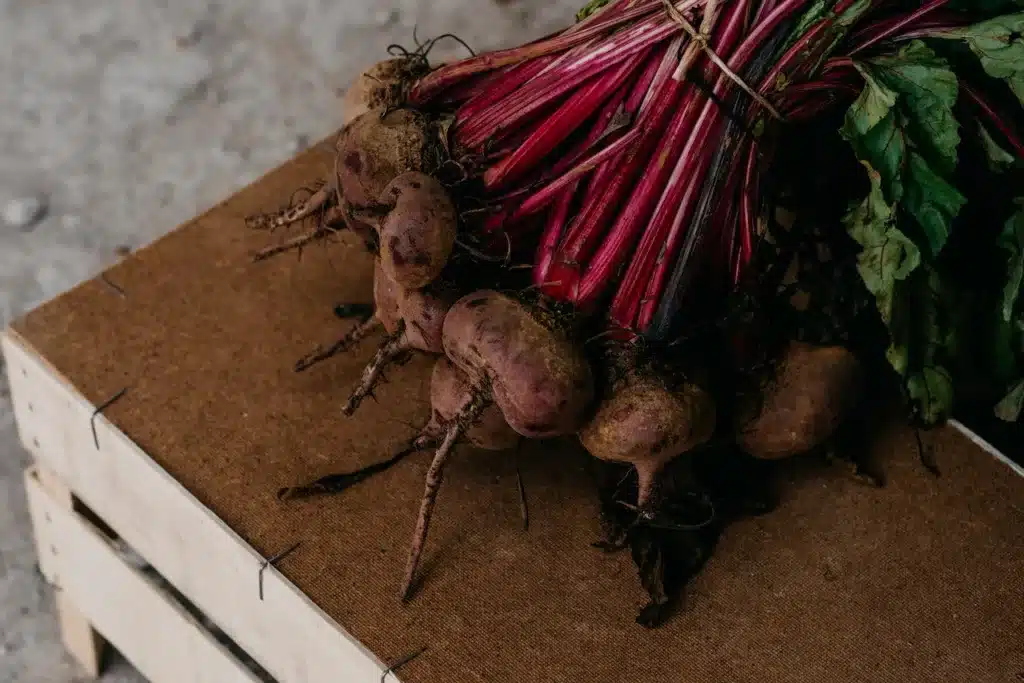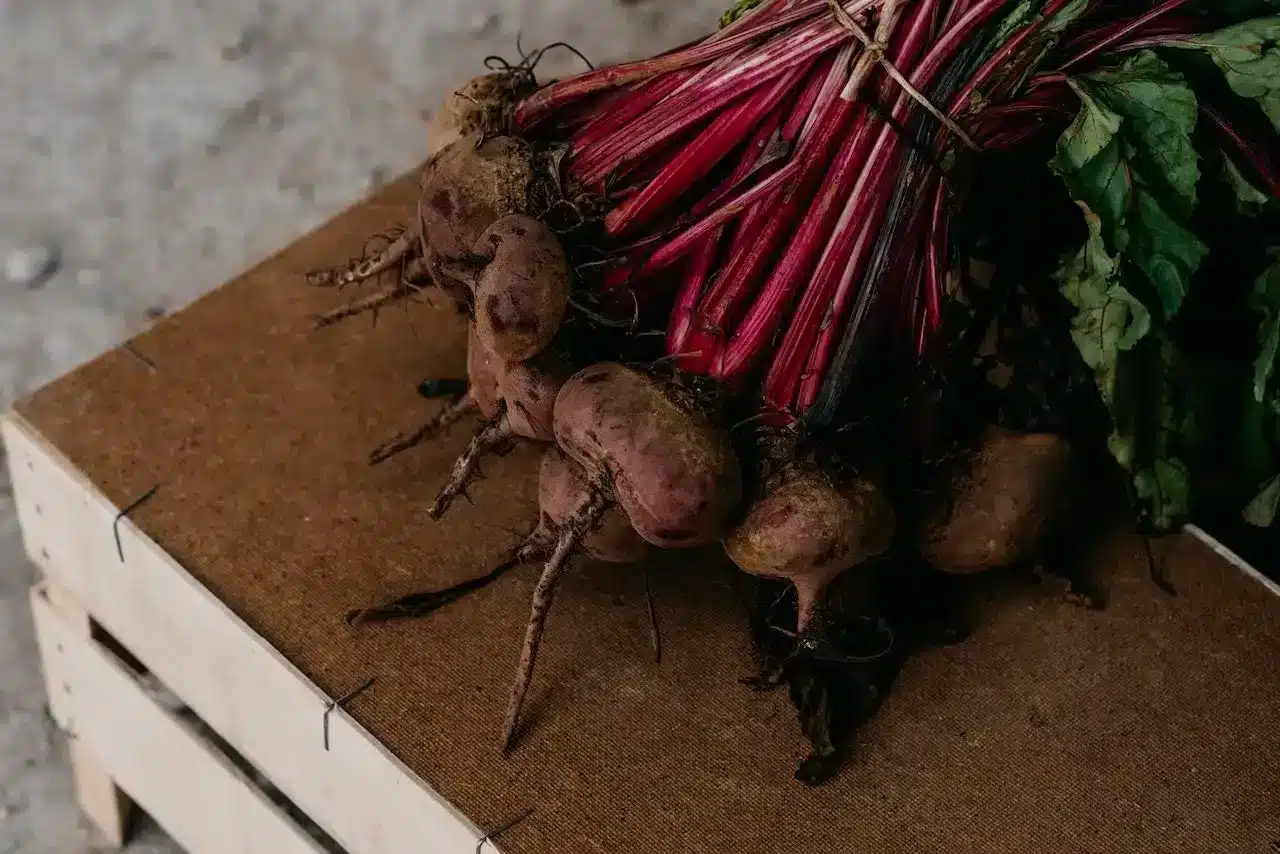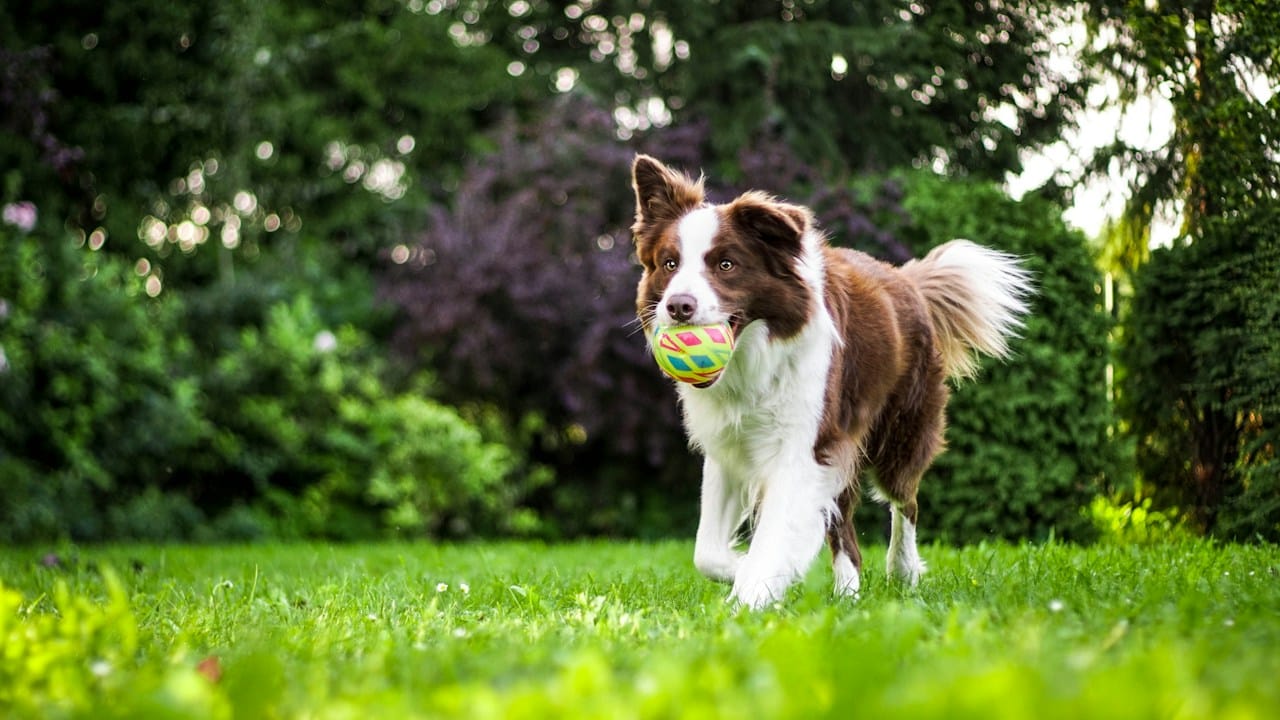To ensure our dog’s safety, we must consult with a vet before introducing any new food to their diet. Can dogs eat beets? This guide tells you if beets are safe for your dog, how to feed them right, and how to add them to a healthy diet.
People worldwide widely consume beetroot, which is a vegetable that packs nutritional benefits, including antioxidants, anti-inflammatory properties, and cleaning potential. However, it does have one potential issue: its oxalate content. Compounds found in beets can create calcium oxalates in your dog’s body, causing a decrease in their blood calcium levels. This may result in urinary issues, crystal formation, or the formation of stones.
Table of Contents
You may be interested in: Can dogs eat spinach? Is spinach good for dogs

Can dogs eat beets?
Beetroot is a nutrient-rich vegetable with a thick, thin-skinned exterior and a deep red pulp. It contains high levels of sugars, fiber, and essential nutrients like vitamin C, folic acid, phosphorus, iron, iodine, and B vitamins (B1, B2, B3, B6).
Beetroot is known for purifying and detoxifying the blood, boosting the immune system, and improving oxygen transmission in the body. Beets have betanin, a red pigment that can fight against oxidation and protect against stress and free radicals. It also has anti-inflammatory properties.
Despite these benefits, dogs should be cautious when consuming beets due to their high levels of oxalate. These substances can cause kidney problems in dogs, making it preferable for them to avoid beets altogether.
What is the best way to give beets to my dog for the first time?
Limit your dog’s beet intake to prevent weight gain due to high levels of sugar and carbs. Now, let’s take a look at how to prepare beets for your dog’s consumption.
The best and most common method is cooking them until they’re tender, similar to how we prepare them for ourselves. Afterward, cut them into bite-sized pieces that are easy for your dog to chew. You can also puree them for even easier consumption, depending on your dog’s preferences.
Another option is to feed them to your dog raw, but this requires extra care. Raw beets can be tough for your dog to eat, so you must supervise them to ensure they don’t choke.
When introducing beets to your dog, make sure to cook them, chop them into small pieces, and offer a small taste. Wait a moment to ensure your dog has digested it properly before gradually adding the rest of the portion.

What if my dog eats beets?
The amount of beetroot your dog consumes determines whether it can cause problems or not. If your dog is not a tiny or young breed and ate only a little bit, there should be no problems. Some commercial dog foods contain beetroot and are therefore safe and beneficial for your dog’s health, as we’ve discussed.
However, if your dog consumes beetroot excessively or too frequently, it may result in urinary system problems, as we’ve previously mentioned. Additionally, excessive consumption can lead to low calcium levels, which poses a significant risk to your dog’s health.
Calcium is essential for dogs because it assists in various bodily functions such as bone development, muscle function, nerve impulses, blood clotting, chemical processes, and hormonal regulation.
Read Also: Can dogs eat celery? is celery safe
How to give beets to my dog?
Are beets safe for dogs to eat? This is a common question if you’re thinking about giving beets to your furry friend. It’s recommended to give your dog fresh and unprocessed beets to avoid any added ingredients like salt or sugar.
You can slice them thinly as a treat or mix them with their regular food. When you give your dog beets, it’s important to do them in small amounts. This means not giving them too many at once, whether the beets are boiled, cooked, or raw.
Why are beets toxic for a dog?
Beetroot is toxic for dogs due to the presence of oxalic acid, which produces salts called oxalates. Calcium oxalate, when absorbed and bound with calcium ions, particularly becomes toxic to dogs.
Your dog absorbs oxalates, which can enter its bloodstream as soluble oxalates. When a dog eats beets, some of them turn into calcium oxalate, which doesn’t dissolve and comes out in their feces. The rest can accumulate in their kidney tubules and vein walls as calcium oxalate.
If your dog eats too many beets, it can form calcium oxalate, which may cause a decrease in blood calcium levels by up to 50%. This is especially risky for pregnant or lactating female dogs. Additionally, it can harm the kidneys and predispose your dog to the formation of urinary stones.
Oxalates are present in the entire beet plant, including the pulp. Therefore, one should offer it to dogs in moderation. Feeding your dog beets frequently can cause urinary problems and increase the chances of developing calcium oxalate crystals or uroliths. These conditions may require surgery to treat.
Read Also: Can cats eat bread? Is bread bad for cats ?

Warnings of beets for dogs
Don’t give beetroot to your dog if it has sugar-related diseases like diabetes or insulin resistance, or if it’s overweight. Beetroot has lots of sugar that could make these problems worse. Also, vets advise against it if your dog has diarrhea or increased intestinal peristalsis as the fiber could make things worse.
The main warning of offering beetroot to a dog is if it has a calcium deficiency or is pregnant or lactating. Too many beets can harm your dog by creating calcium oxalate due to oxalates binding with their calcium. Dogs with kidney or lower urinary tract problems should avoid beets because they could cause kidney damage and urinary stones.
Conclusion: Can dogs eat beets?
In conclusion, Offer beetroot to dogs with caution despite its health benefits. Excessive beet consumption in dogs can lead to kidney and urinary problems. Moderation is key for dogs when consuming beets to prevent weight gain, and they should be supervised when consuming raw beets. If considering giving beets to your dog, consult with a vet beforehand to ensure your dog’s safety and optimal health.
Article source: Beets Nutrition Facts and Health Benefits. Expert advice from Akc, can dogs eat beets


